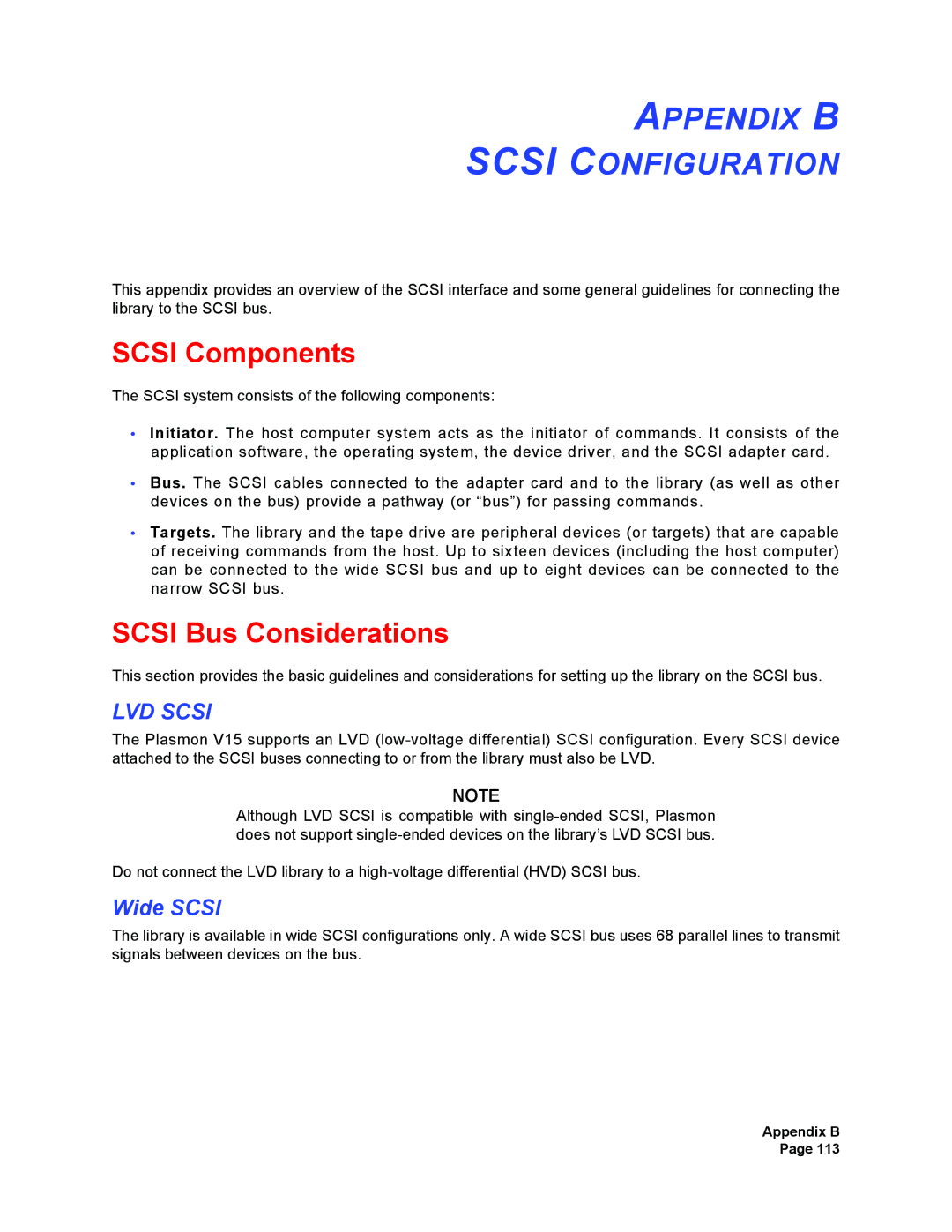APPENDIX B
SCSI CONFIGURATION
This appendix provides an overview of the SCSI interface and some general guidelines for connecting the library to the SCSI bus.
SCSI Components
The SCSI system consists of the following components:
•Initiator. The host computer system acts as the initiator of commands. It consists of the application software, the operating system, the device driver, and the SCSI adapter card.
•Bus. The SCSI cables connected to the adapter card and to the library (as well as other devices on the bus) provide a pathway (or “bus”) for passing commands.
•Targets. The library and the tape drive are peripheral devices (or targets) that are capable of receiving commands from the host. Up to sixteen devices (including the host computer) can be connected to the wide SCSI bus and up to eight devices can be connected to the narrow SCSI bus.
SCSI Bus Considerations
This section provides the basic guidelines and considerations for setting up the library on the SCSI bus.
LVD SCSI
The Plasmon V15 supports an LVD
NOTE
Although LVD SCSI is compatible with
Do not connect the LVD library to a
Wide SCSI
The library is available in wide SCSI configurations only. A wide SCSI bus uses 68 parallel lines to transmit signals between devices on the bus.
Appendix B Page 113
